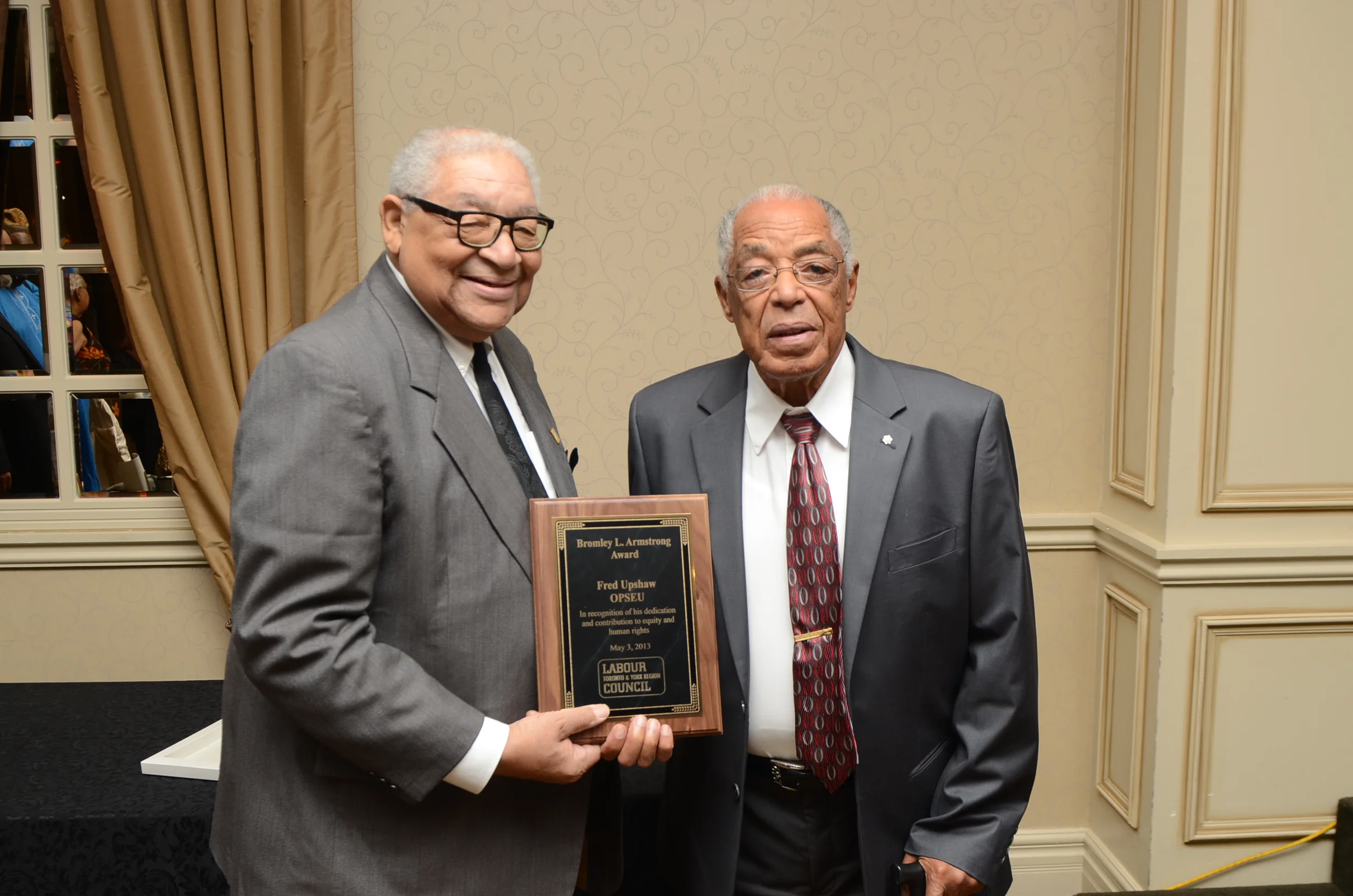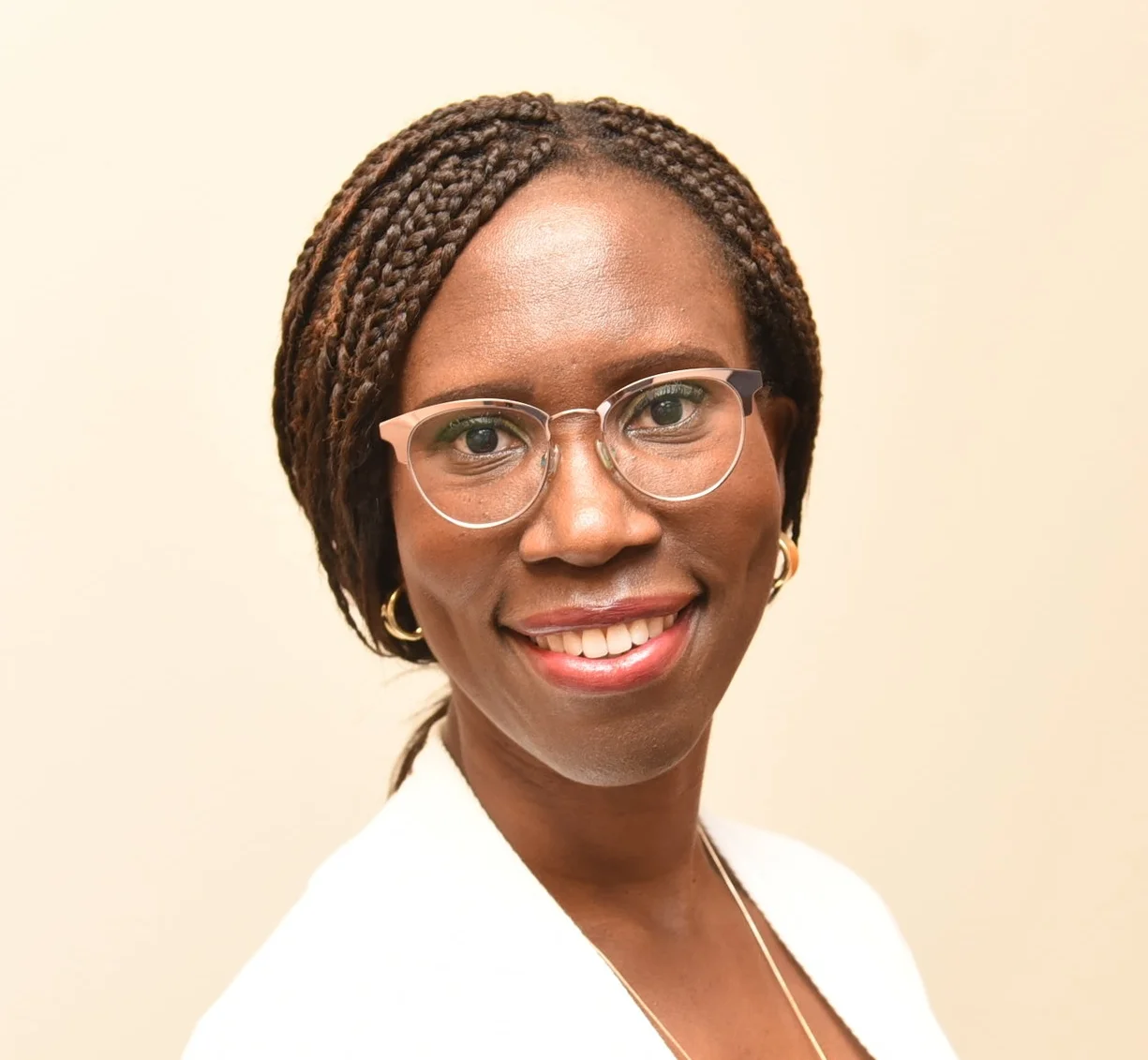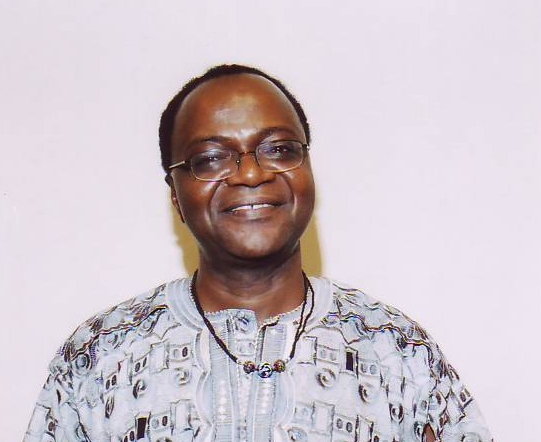Canada is 'a better place today' because of Bromley Armstrong
August 30, 2018
When Bromley Armstrong arrived in Toronto in 1947, there were just a few hundred Blacks residing in Canada’s largest city.
Of his estimate of 1,600, BJ Spencer Pitt was the only Black lawyer practicing in the province and there were no Black doctors, dentists or garbage collectors.
Much has changed since then, in large part to Armstrong who died on August 17 after a lengthy illness.
He was 92.
The trade unionist, community organizer and activist fought for civil and human rights long before Canada had a legislative and constitutional framework to defend human rights and collective agreements that included human rights language.
Marie Clarke-Walker, the Canadian Labour Council’s (CLC) first racialized female secretary/treasurer, said Canada has lost an icon.
“I will remember Bromley the way I think he wants to be remembered as a social justice activist and someone who fought for the rights of all,” she said. “He was the impetus for me to do the work I do in terms of building coalitions with labour and community. He realized at a very early stage that in order for the labour movement to be successful, it had to work in conjunction with community organizations and vice versa. He was always supportive of me and I will miss his advice, conversations about the labour movement and politics and his supportive words.”
Jamaican Diane Fuller receives her Canadian citizenship from Bromley Armstrong at a special ceremony
CLC president Hassan Yussuff said Armstrong – the fourth of seven children -- was a trailblazer and outstanding leader.
“Bromley was a pioneer for so much that we take for granted today in how Canada has changed,” said Yussuff who is the first person of colour to lead the CLC. “He represented a generation of people who didn’t simply accept the challenges and difficulties they faced. They recognized that you could make it better. I think his legacy is that Canada today is a better place because of his courage and conviction to fight for others to make this country more inclusive.”
Armstrong, who after leaving high school worked at a foundry owned by a distant relative and with R. Hanna & Sons dry goods store in Jamaica, was the last survivor of the 29-member delegation led by Donald Moore that went to Ottawa in 1954 to protest the federal government’s restrictive immigration policy that shut out Blacks and other visible minorities.
“The Canadian government at that time, despite the post-war boom and the growth in manufacturing, did not want Black people in this country,” he told graduates in his convocation address after York University recognized him with an honourary doctorate in 2013. “You may be surprised to know that they tried to keep Canada White. They told us that we could not survive in a cold country as we knew nothing about wearing parkas, mittens, toques and winter boots. As human beings, if you are cold, you are going to dress warm. I have survived 67 years in the country that said I could not survive.”
The late Stan Grizzle (l), Rachel Mills and Bromley Armstrong were part of the 29-member delegation that went to Ottawa in 1954
The landmark trip and the subsequent relaxation of immigration laws partly because of Canada’s demand for cheap and unskilled labour led to the introduction of the West Indian Domestic Scheme (WIDS) that paved the way for a quota of about 280 Caribbean women to enter Canada annually. They were subsequently granted landed immigrant status in return for their services.
Jean Augustine, the first Black woman elected to the House of Commons, came to Canada in 1960 under the WIDS.
“Bromley had an amazing energy and vision for the community and our engagement with society around social justice issues,” she said. “I will also remember him as being one of the very early people that talked about income generation in our community.”
At Massey Harris -- his first Canadian employer – where his hourly starting wage was 62 cents which was 13 cents less than that of co-worker and Irish immigrant, Dennis McDermott, who was expelled from South Africa in 1941 after he was caught socializing with a Black friend, Armstrong became active in the United Auto Workers Local 439 after being denied the opportunity to become the company’s first Black welder.
He also participated in ‘sit-ins’ and ‘test cases’ in Toronto and Dresden in the 1950s to protest Blacks being denied housing and refused services in restaurants, stores and barbershops.
“The problem was not just one of trying to keep Canada White,” Armstrong, who was a Jamaica Trade Union Congress member before migrating to Canada, once said. “It was the extent to which Blacks, Jews and Native people, amongst others, were being treated as second-class citizens.”
The first Black to be appointed to the Ontario Labour Relations Board (OLRB) in 1980 after serving five years as Ontario Human Rights Commission commissioner, Armstrong collaborated with historian and curator Dr. Sheldon Taylor on his memoirs, ‘Bromley: Tireless Champion for Just Causes’, that was published in 2000.
“One of the things we must remember about Bromley was that he spoke truth to power which, I think, was very important for our community in the sense that he sacrificed himself on so many occasions,” said Taylor. “This was a man that went above and beyond the call. Though he was in appointed positions, he wasn’t afraid to be on the frontlines marching and standing up with Dudley (Laws) and others. He often went to court and made his presence known. That took a certain level of bravery and commitment to community and to purpose which we really don’t see anymore.”
When the Toronto & York Region Labour Council (TYRLC) equity committee made the decision 15 years ago to name an award after a human rights activist in the labour movement, Armstrong was the unanimous pick.
Clarence Forde (l) was the recipient of the 2006 Bromley Armstrong Award
TYRLC president John Cartwright supported the decision to establish the Bromley Armstrong Award to honour his courage, dedication and outstanding service to Canada’s labour and human rights movement.
“I am honoured to have known Bromley and to have listened to him as he talked about his journey,” he said. “It’s fascinating when you think about the courage of a Black man standing up against racism and discrimination in the 1940s when it was a predominant reality all across the world.”
Retired Ontario Federation of Labour human rights director June Veecock was the inaugural award recipient in 2004.
“When I held that role for 19 years, Bromley had my back,” said the Coalition of Black Trade Unionists Ontario chapter founding chair. “I could rely on him to provide a historical context in terms of the efforts of the labour movement in fighting racism and discrimination. He was committed to the struggle of working people and it was quite an honour to be the first recipient of an award in his name.”
Bromley Armstrong presented the award bearing his name to the late Fred Upshaw in 2013
Two-time JCA president Herman Stewart, who won the award four years ago, met Armstrong at the OLRB in 1981.
“I was a union organizer and after introducing himself at a meeting, he gave me a list with the names of the other Blacks in leadership positions in the union movement and suggested I contact them so we could meet over lunch and work together to get more people of colour involved in leadership,” recalled Stewart.
Armstrong was also instrumental in Stewart joining the JCA.
“Signing the card to become a member wasn’t sufficient for Bromley,” he added. “He wanted me to become a leader because he said their views tend to be right of centre and I, as a trade unionist, would bring a different perspective to things. He stood up and nominated me for a position on the executive. I didn’t know anyone in the organization, yet I beat the incumbent because of Bromley.”
Dr. Mavis Burke attended Bromley Armstrong's funeral
Armstrong was a founding member of numerous community organizations. They include the Caribbean Soccer Club in 1949 that participated in the Toronto & District Soccer League, the Negro Citizenship Committee in 1951, the Canadian Association for the Advancement of Coloured People in 1958, the Jamaican Canadian Credit Union in 1963 and the Urban Alliance on Race Relations in 1975.
He published a community newspaper, ‘The Islander’, for five years up until 1977 and was a member of the Jamaican Canadian Association (JCA) founding executive that also comprised Roy Williams who was the organization’s first president.
“Bromley fought against anything that was unjust, unfair and unequal,” said Williams who was introduced to Armstrong in the summer of 1962 by late JCA founding member Esmond Ricketts. “He attacked it from every angle without flinching. He was very ‘down-to-earth’, friendly and approachable.”
Armstrong also co-founded the National Black Coalition of Canada and the National Council of Jamaicans and Supportive Organizations in Canada (NCJSOC).
JCA president Adaoma Patterson met Armstrong – who spent 10 months in Jamaica in the early 1960s supervising the setting up of a factory and assembly line while employed with Wholesale Typewriters that became Commodore Typewriters Co. and then Commodore Business Machines -- at the NCJSOC’s first conference in 1987.
“Bromley was the president and I went on to become the national youth representative,” she said. “That meant I had the privilege of working closely with him and many other community leaders. He was always willing to give young people a space to be involved as equal participants and he mentored and shared leadership lessons with me and so many others. While I am saddened by his passing, I am grateful for the sacrifices he made that opened doors for so many of us. His legacy will live on through the JCA and so many other organizations.”
A protector of the rights of many ethnocultural groups in Canada, Armstrong was honoured with the West Indian Federation Club award, the Order of Jamaica, the Order of Ontario, the Order of Canada, the Harry Jerome Award for Community Service, the federal government’s Race Relations award, the Canada 125th anniversary medal and the Bahai National Race Unity award.
Bromley Armstrong with the JCA's first president Roy Williams (r) and the late Bev Mascoll
The community stalwart is featured in two videos commissioned by the TYRLC.
‘Welcome to Dresden’ provides a civil rights narrative of how Armstrong, Ruth Lor Malloy (a Chinese student attending the University of Toronto at the time) and late World War II veteran Hugh Bennett, who formed the National Unity Association that led to the passage of Ontario’s Fair Employment Practices Act in 1951 and the Fair Accommodation Practices Act three years later, ‘tested’ the Fair Accommodations Practices Act in Dresden.
‘Welcome to Canada’ tells the story of the ground-breaking trip made to Ottawa 54 years ago to protest Canada’s restrictive immigration laws.
Former Ontario provincial minister Mary Anne Chambers is thankful for the path that Armstrong cleared for her and many others to be successful in Canada.
“His personal experiences of blatant discrimination would have hardened the hearts of most men, yet he always shared those memories with a touch of humour,” she said. “His fight against racism involved him partnering with others to make things better for everyone. I will always be grateful for what I learned from Bromley’s approach to things that really matter.”
Award-winning singer Liberty Silver serenades Bromley Armstrong at a community event
Ex-JCA president Audrey Campbell said Armstrong was fearless in his pursuit of civil rights and justice.
“He laid the groundwork for future generations to follow,” she said. “We are eternally grateful for his sacrifices.”
Bromley Armstrong & his wife Marlene with the Baha'i National Race Unity Award
An avid sportsman, Armstrong was a Jamaican welterweight boxing champion who missed the 1946 Central American & Caribbean Games in Colombia because of illness, a Toronto District Soccer League all-star and an excellent swimmer and water polo player.
Survived by his wife of 47 years, Marlene, Armstrong was the father of eight children.
He was laid to rest on August 29.
Bromley Armstrong's casket carried from the church















